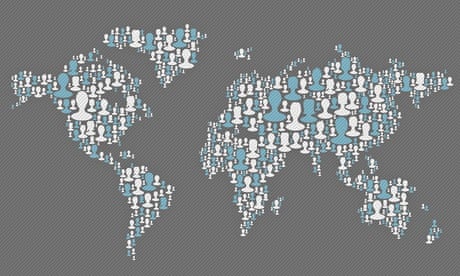Startup hubs across Europe are brimming with confidence and there are plenty of success stories, but the continent still seems to suffer from an inferiority complex when comparing itself to Silicon Valley. Even in 2014, following the Criteo initial public offering and the sale of Supercell at a $3bn valuation, entrepreneurs can still be found mulling over which city is "the next Silicon Valley" and the importance of "American DNA" for startup success.
Europe needs to get over its Valley envy. Its entrepreneurs should focus on what makes each of the continent's tech clusters inimitable and how they can grasp the opportunity these maturing startup ecosystems afford.
I experienced the nature of this opportunity first-hand in my position as director of platform partnerships at Facebook, as we set about establishing partnerships in Europe, targeting European tech and media companies such as King, Spotify, The Guardian and the BBC. Our challenge was to prove to the sceptical European tech community that you don't have to travel to the Valley to partner with Facebook.
The success of Facebook's partnerships in Europe speaks for itself. King is now the largest social gaming company in the world in terms of users; Spotify has redefined the way more than 24 million users discover, consume, and share music; Facebook traffic to The Guardian has, at times, surpassed Google traffic in terms of referrals; the BBC streamed every single event of the London 2012 Olympics on the platform. Facebook became relevant to Europe and European startups became relevant to Facebook.
My experience of the vibrant European tech industry at Facebook and my passion to continue working with startups on the continent led me to leave the social network in summer 2013 to establish an early stage venture capital fund, White Star Capital.
The momentum in the community starts with those willing to take the leap of faith into entrepreneurship. In recent years, building or working for a startup has become an accepted choice in Europe. As Neelie Kroes, vice president of the European Commission, tweeted: "Entrepreneurship is a career path in its own right. We need to teach our kids that."
Entrepreneurs are now drawing inspiration from successful figures such as Nick D'Aloisio, Daniel Ek and Michael Acton-Smith. These young visionaries are now held up as role models prepared to take a risk to create something from nothing. After all, they are the engines of growth for modern European economies. Take London as an example: 27% of job growth in London last year came from the tech sector, with the number of tech startups growing by 76%, according to Tech City UK (pdf).
The startup support network in major European tech hubs is also maturing, with greater advice and more extensive networks available to help first-timers succeed. Seedcamp, the mentoring and investment programme launched in 2007, has played a major role in this. Earlier this month it hosted its biannual Seedcamp Week in London, hosting 20 companies and over 300 mentors and investors.
So it seems the stars are aligning for Europe's entrepreneurs, but bringing dreams to life at an early stage requires funding, and this is where Europe falls short.
Comparing data from the North American Venture Capital Association and the European Venture Capital Association, there is a massive gap in funding between the US and Europe. US startups receive close to five times more funding at the early stages than their European counterparts. If we truly believe the next global superstar in tech will hail from Europe, why would we only fund them at one-fifth the amount of their future US competitors?
The problem is also exacerbated by European entrepreneurs that ask for too little funding for fear of being diluted or not feeling funding is available. Entrepreneurs asking for £250,000 at seed stage will need to return to fundraising very quickly. Entrepreneurs need to fundraise to the level of their ambition and give themselves time to start down the path of achieving it.
The momentum is changing quickly in Europe: ecosystems have matured; successful entrepreneurs are becoming advisors and angel investors; venture capitalists from both sides of the Atlantic are betting appropriately on European teams; and initial public offering and mergers and acquisitions transactions are also providing exits and liquidity for the cycle to continue. I have great faith in Europe's entrepreneurs and look forward to whiteboarding crazy ideas with passionate young people, and deploying financial resources to help them achieve their dreams.
Christian Hernandez Gallardo is co-founder of White Star Capital – follow Christian on Twitter @christianhern
Get more articles like this sent direct to your inbox by signing up for free membership to the Guardian Media Network – this content is brought to you by Guardian Professional.




Comments (…)
Sign in or create your Guardian account to join the discussion